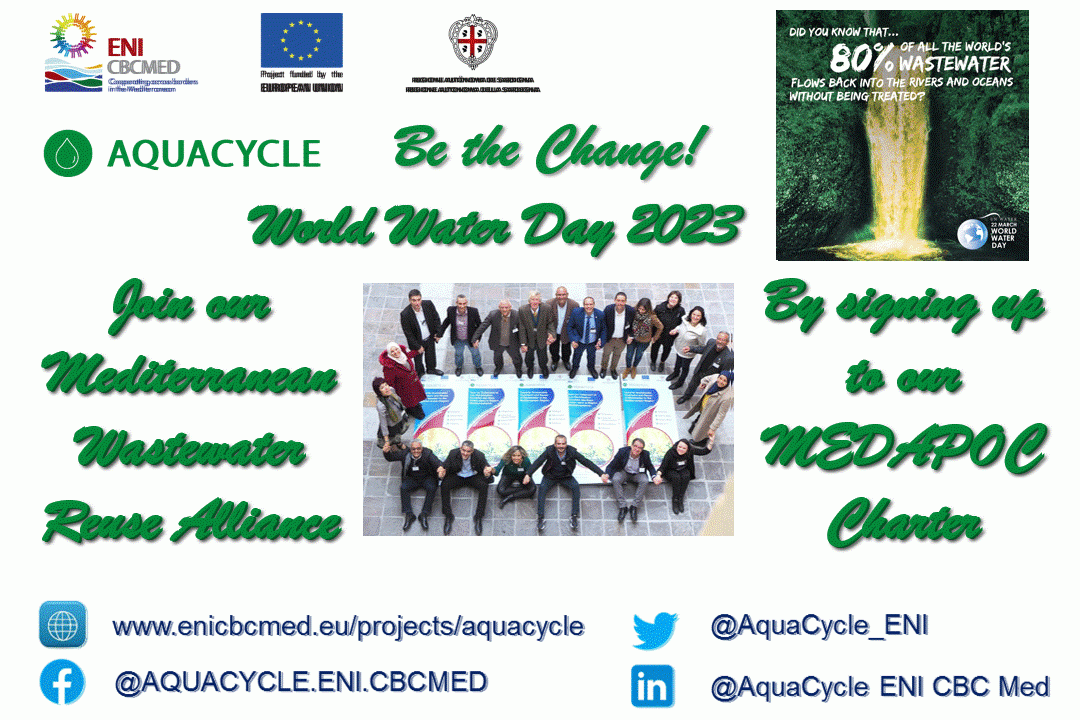AQUACYCLE invites stakeholders to join Mediterranean Wastewater Reuse Alliance

The theme which has been selected for World Water Day on 22nd March 2023 is about accelerating change to solve the water and sanitation crisis. “And because water affects us all, we need everyone to take action. That means you!” = Be the Change!
To mark World Water Day 2023, and therefore to Be the Change, the AQUACYCLE Partnership cordially invites you to join its Mediterranean Wastewater Reuse Alliance by signing up to the project’s MedAPOC Charter. The content of the Charter can be downloaded in English, French and Arabic, while the registration form to sign up to the Charter can be accessed through this link.
The scope of the Charter is to embrace the sustainable use of nonconventional water resources and to promote the transfer and knowledge sharing of AQUACYCLE’s research outcomes at the operational level. In doing so, the Charter aspires to set a common vision for the establishment of a cross-border Mediterranean Wastewater Reuse Alliance, i.e. a community that is aware of the need to accelerate the reuse of treated domestic effluent which presents itself as an all-year-round available resource.
The acronym APOC stands for “Anaerobic digestion”, “Photocatalytic Oxidation” and “Constructed wetland(s)”, the three components of an eco-innovative system for the treatment of domestic wastewater, as shown by the 3-dimensional miniature replica below.
Rather than bringing the voices of the research teams who designed, tested, and validated the APOC technology, the present, semi-final version of the Charter brings the voices of farmers and local communities from the three geographic locations, where a pilot demonstration unit of the APOC technology was foreseen to be installed: (1) a site owned by the real estate company SANABEL in Deddeh, south of Tripoli in North Lebanon; (2) at the existing anaerobic wastewater treatment facility of Blanca in the Murcia Region of Spain; and (3) at the existing wastewater treatment facility of Bent Saidane in the Zaghouan Governorate of Tunisia. The three locations have in common that they represent small to medium sized communities which foremost depend on farming to sustain their livelihoods.
The forthcoming, final version of the Charter will aspire to add also the testimonies of wastewater treatment plant operators and technicians, who will have taken part in ongoing training events on the design, operation, and maintenance of the APOC treatment technology. Furthermore, on the occasion of the upcoming, third series of stakeholder workshops, policy- and decision-making authorities in the water, agricultural, sanitation and health-related sectors in Lebanon, Spain, and Tunisia, will be invited to provide their views on the functionality of a WebGIS, an online decision support tool developed by the project’s lead-beneficiary, the Centre for Research &Technology Hellas (CERTH), to arrive at optimum action plans for the reuse of treated effluent.









